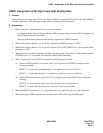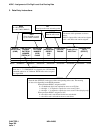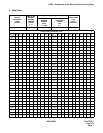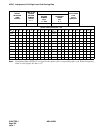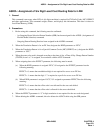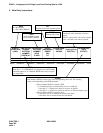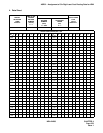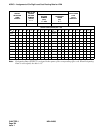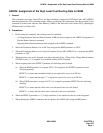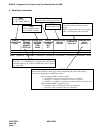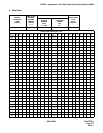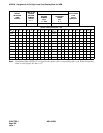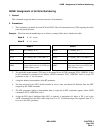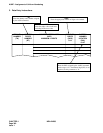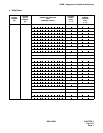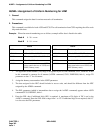
NDA-24298 CHAPTER 4
Page 335
Issue 1
ASDCN : Assignment of Six Digit Least Cost Routing Data for NDM
ASDCN: Assignment of Six Digit Least Cost Routing Data for NDM
1. General
This command is necessary when LCR six (6) digit translation is required for FX Prefix Codes, MCI, SPRINT
and other applications. This command assigns, deletes, and displays this information. The data assigned by this
command is written in the Network Data Memory (NDM) of the Network Control Node (NCN), updating the
NDM at each Local Node (LN).
2. Precautions
1. Before using this command, the following must be confirmed:
- An Outgoing Route Selection Pattern Number (OPR) has been assigned in the AFRSN (Assignment of
Flexible Route Selection) command.
- Outgoing Pattern Routing Data has been assigned in the AOPRN command.
2. When the Translation Pattern is for an FX line, designate the KIND parameter as “PFX.”
3. When the Translation Pattern is for a Special Common Carrier (MCI, SPRINT, etc.), designate the KIND
parameter as “SCC.”
4. When the route to be used is changed according to the time of day, a Time of Day Change Pattern Number
(TDPTN) from 1 to 7 is assigned, in accordance with the ATCP command.
5. When assigning data to the EFFECT parameter, the following must be noted:
(a) When the KIND parameter is assigned “PFX,” 0/1 assigned to the EFFECT parameter has the
following meaning:
EFFECT = 0: means that an additional digit is not required for access to an FX line.
EFFECT = 1: means that the digit “1” is required as a prefix for access to an FX line.
(b) When KIND parameter is assigned “SCC,” 0/1 assigned to parameter EFFECT has the following
meaning:
EFFECT = 0: means that the office code is not allowed for the area code dialed.
EFFECT = 1: means that the office code is allowed for the area code dialed.
6. When the EFFECT parameter is “2,” 6-digit translation is not required for the area code designated.
7. When deleting the AOPRN command, this also deletes the ASDCN table using the OPR pattern.



